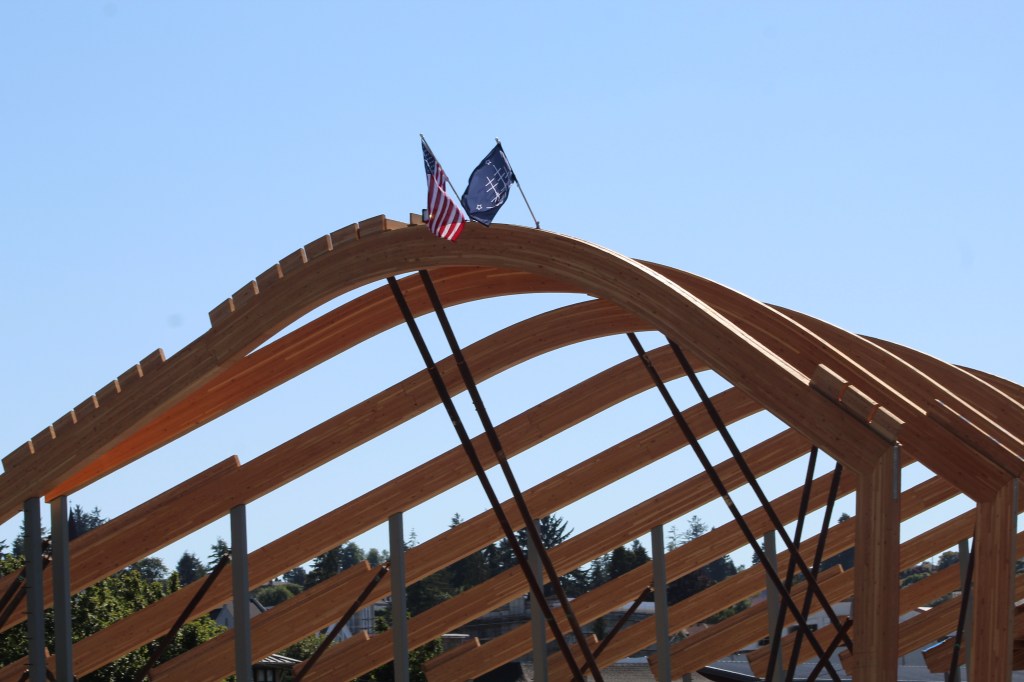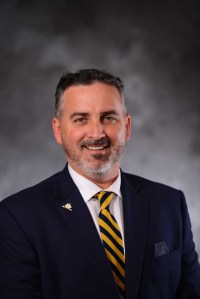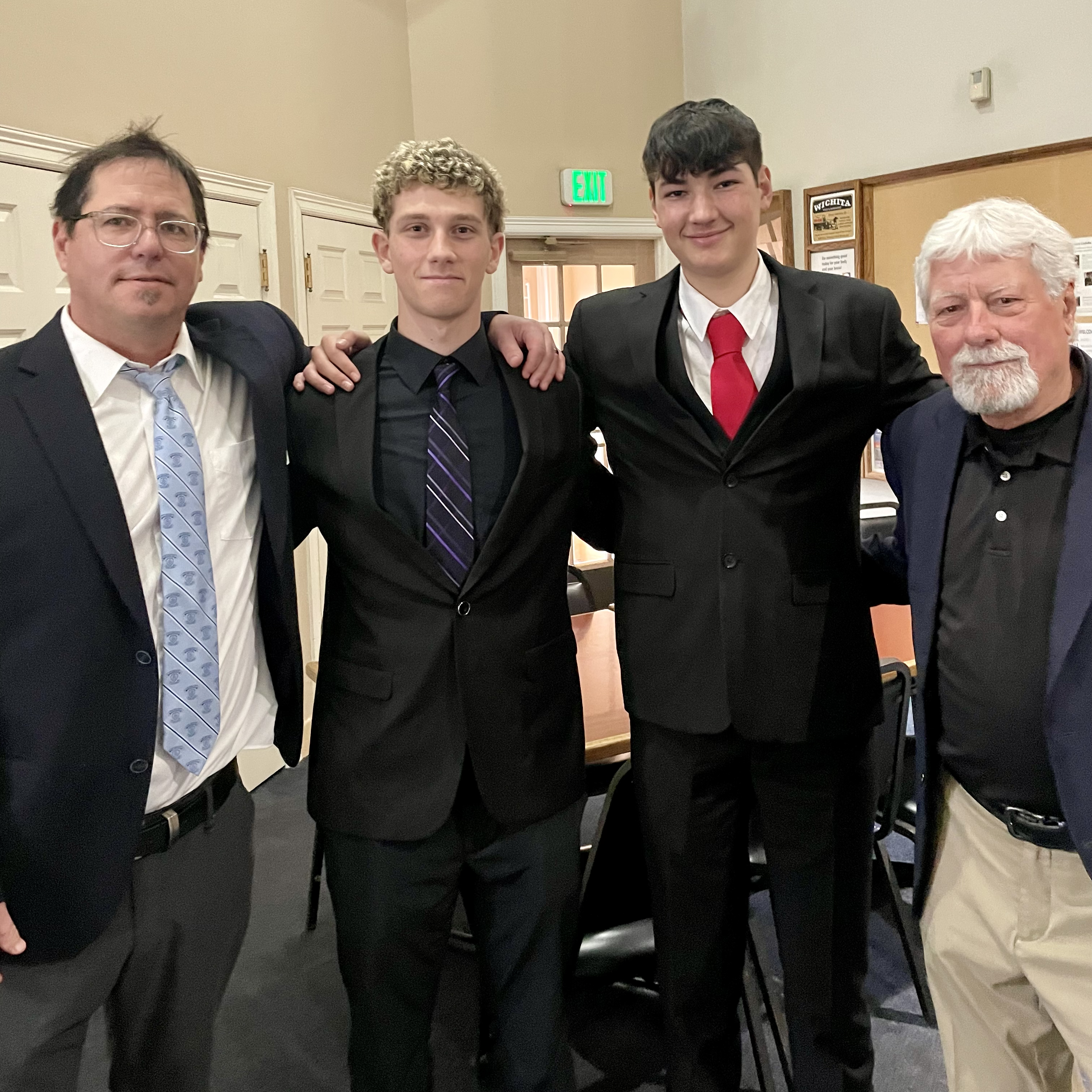Legislative session takeaways
Published 4:00 pm Wednesday, July 9, 2025

- The Columbia River Maritime Museum’s Mariners Hall Exhibition and Education building is one state-funded local project. Mathias Lehman-Winters
Representative Javadi points to coastal priorities
On June 27, the 83rd Oregon Legislative Assembly adjourned marking the conclusion of the 2025 Legislative Session. It was a session characterized as much by the legislation that didn’t get passed — as that which did.
Trending
Representative Cyrus Javadi, the Oregon State House Member who represents all of Clatsop and Tillamook counties, as well as part of Columbia county, spoke with The Astorian on his takeaways from the session and how decisions made in Salem may impact his constituents.
Javadi said that overall, he believes the session was a success.
“I feel really good about the session,” Javadi said. “I had a lot of high hopes and goals going into it … . We wanted to get some money for the hospital expansion.”
The hospital in question is the Columbia Memorial Hospital in Astoria. The hospital is wrapping up a $300 million dollar expansion, for which it was able to secure $6 million from the legislature to go towards safety retrofitting.
“We knew going into it, it was going to be a big difficult ask — $6 million for a project — it’s hard to come by when you’ve got so many good projects available in the state,” said Javadi.
Another success Javadi points to in regard to funding local infrastructure projects, was the $700,000 of state funding procured for the Columbia River Maritime Museum’s Mariners Hall Exhibition and Education building, which is currently under construction in downtown Astoria.

Construction is underway on The Columbia River Maritime Museum’s Mariners Hall Exhibition and Education building.
Mathias Lehman-Winters
Trending
Javadi said that the museum funding would not have materialized if it weren’t for teamwork. Members of the Joint Committee on Ways and Means were brought out to the project site to help convey to them the importance of the issue.
“A lot of the credit goes just to the teamwork,” Javadi said. “But you know, at the local level, good executive teams, good community support, and then we did our work at the capitol to make sure that the Ways and Means Committee knew about the projects and even took them out for site visits.”
Transient Lodging Tax
Oregon’s statewide transient lodging tax is a 1.5% surcharge on hotels, motels and other lodging providers that generates funds for the Oregon Tourism Commission. In addition to this statewide tax, many jurisdictions also impose local lodging tax rates – often higher than the statewide rate.
Local lodging taxes imposed after July 1, 2003 are subject to a 70/30 split, which designates at least 70% of revenues for tourism related facilities and tourism promotion and reserves a maximum of 30% of revenues for discretionary spending. Javadi sought to revise the structure for those local lodging taxes.
Under the proposed revision, laid out in House Bill 3962, the split would be changed to a minimum of 40% of funds going to tourism, allowing 60% of funds to be allocated for “community infrastructure” such as roads, wastewater, park maintenance, law enforcement, etc.
“One of my big legislative priorities was to change the transient lodging tax at the local level, (to improve) the allocation and distribution of that money to help out communities that are heavily impacted by tourism, but don’t have the resources to respond appropriately,” Javadi said. “We went to bat for that, and we got as close as we’ve been able to get in 22 years.”
Javadi said that even though the bill did not pass, they were able to raise awareness and if there had been more time left in session, it would have become law. Javadi hopes to revisit the bill in the 2026 short session.
“We had the votes, (but) ran into some procedural issues towards the end (and) ran out of time,” Javadi said. “But I feel really good about our chances in the short session to finish that one.”

Rep. Javadi said teamwork and a site visit helped in getting funding for The Columbia River Maritime Museum’s Mariners Hall Exhibition and Education building.
Javadi said the bill’s failure to pass was a result of Senator Mark Meek killing every bill in his committee, the Senate Committee On Finance and Revenue, after a funding package for the Oregon Department of Transportation failed to pass due to an absence of primarily Republican support in the legislature.
“We had all the votes we needed in the Senate, plus some. And one senator (Meek) was upset about transportation … so he decided to just kill everything in his committee,” Javadi said. “And he’d been supportive the week before … but we’ve got the right commitments to get this started back up in the short session and we’ll get it through. Assuming there’s no other surprises, I think we’ll have what I would call a landmark legislation for the coast.”
ODOT cuts
On Friday, June 27, Democrats in the state legislature proposed a three-cent increase to the state’s per-gallon gas tax in order to stave off layoffs, after a larger transportation package fell through.
The tax increase did not pass after almost every Republican and some Democrats expressed opposition. As a result, on Monday, the state began to lay off 483 employees of the state transportation department and a second wave, anticipated in early 2026, will bring the total number of laid-off workers to between 600 and 700.
ODOT will also be closing 12 maintenance stations across the state, none of which are in Javadi’s district.
“I don’t have any specifics about how many got laid off in Clatsop or Tillamook county,” Javadi said. “I think, based on (conversations with the governor’s office) those 12 stations were closed based on their proximity to other stations that could provide those services.”
Javadi said that he does anticipate some of the layoffs to impact his constituents, but at this point, it is unclear how many.
“I still am anticipating there might be some layoffs, I just don’t know how many in our district,” he said.
Editor’s note: The Astorian received a list from ODOT on Wednesday that listed three layoffs in Clatsop County.
Healthcare wins
Javadi points to several key pieces of legislation, all of which passed with bipartisan support, as successes that will support his constituents, particularly in rural communities.
House Bill 2010, which Javadi cast his vote in favor of and which passed, extends taxes on the earnings of certain hospitals and healthcare providers because the more that is collected from those taxes, the more Medicaid money the federal government supplies to the state.
“Part of what we wanted to do was extend this debt tax that providers pay at their request, so that we could maximize the amount of money we, the state of Oregon, could get,” Javadi said. “Our rural hospitals, most of them are running on, they have zero margin, operating margin, and some of them are even running in the red.”
Without Medicaid dollars, some of these rural hospitals could close.
In addition, Javadi introduced HB 3942, legislation that also passed and will expedite the licensure of certain healthcare facilities. Javadi said the genesis for this legislation came from the closure of a Tillamook dialysis clinic that resulted in approximately 20 patients having to travel farther for life-saving treatment, more than an hour each way, three times a week. HB 3942 allowed a new provider to quickly begin operating a dialysis clinic out of the same location without having to go through an extensive remodel.
Javadi also pointed to Senate Bill 951, also known as the “Corporate Practice in Medicine bill,” that strengthened existing restrictions on large corporations buying up small medicine practitioners to create monopolies. The end result, Javadi said, is that independent practices throughout the state will be able to stay in practice.
“That was one that took two sessions, hours and hours of work — but we got it across the finish line.”
This story has been updated to accurately describe the Transient Lodging Tax.









